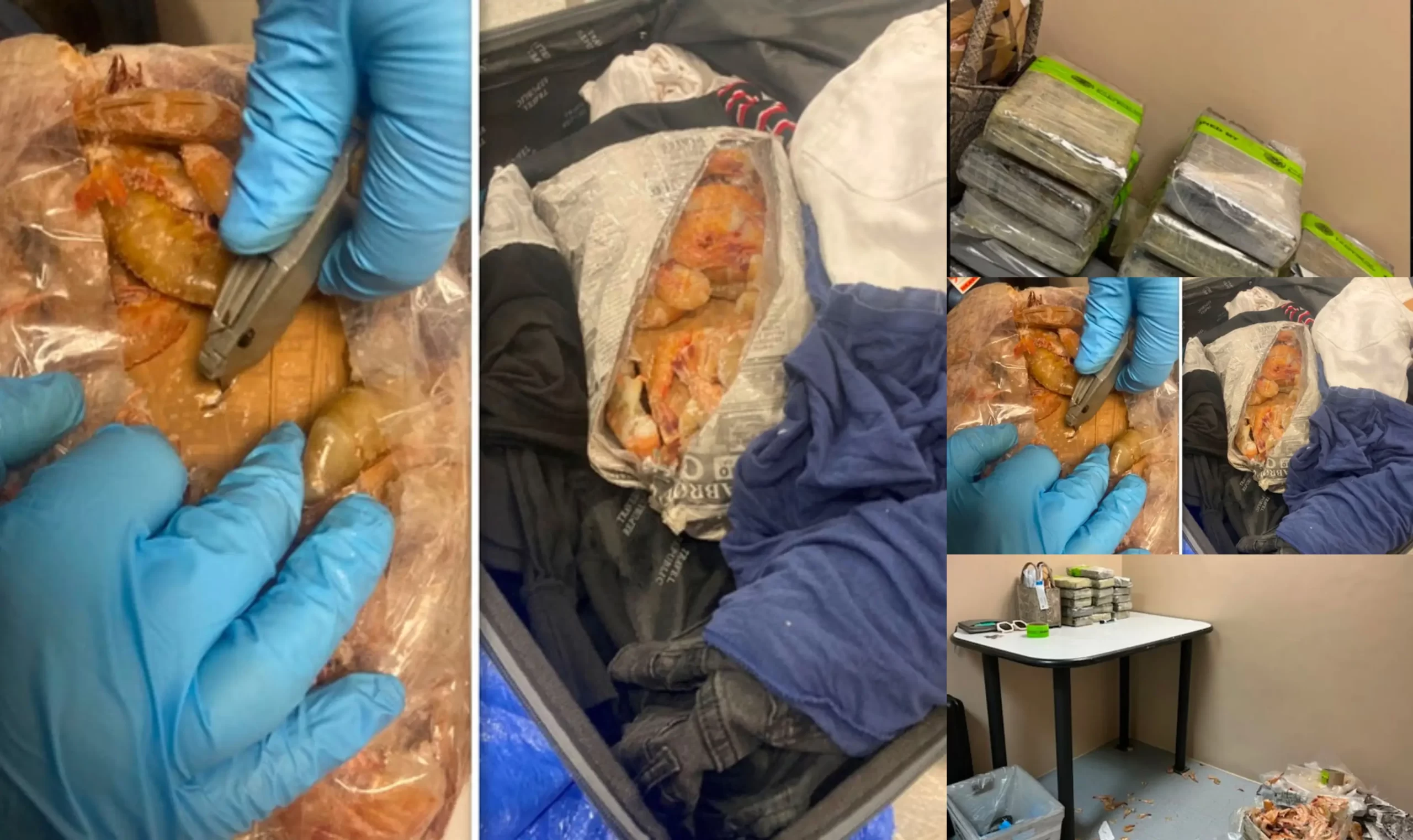
In a shocking turn of events, Zacharie Scott, a 22-year-old US citizen residing in Guyana, was arrested at John F. Kennedy International Airport in New York City for his alleged involvement in smuggling cocaine. What sets this case apart is the method he chose to conceal the illicit substance – inside bags of frozen jumbo shrimp.
On a seemingly ordinary day, Zacharie Scott arrived at John F. Kennedy International Airport via an American Airlines flight from Guyana. Little did he know that his plans to bring illicit drugs into the United States would soon be foiled. As Scott went through the routine customs screening process, his two suitcases were selected for a secondary inspection. Customs and Border Protection officers, trained to detect suspicious activities, discovered loose clothing and packages of frozen jumbo shrimp wrapped in sealed plastic. It was during the inspection of these packages that the shocking truth was uncovered.
Incredible Escape & Wild Chase! Teens on the Run from Youth Detention Center
Upon closer examination, officers found that the packages of shrimp had been tampered with. The carefully wrapped shrimp concealed brick-shaped objects filled with a white, powdery substance. A field test confirmed the officers’ suspicions – the substance was cocaine. The total weight of the cocaine seized amounted to over 40 pounds. This discovery sent shockwaves through the airport and prompted a thorough investigation into Scott’s intentions and potential accomplices.
In the face of overwhelming evidence, Zacharie Scott allegedly confessed to his involvement in the smuggling operation. He admitted that he had agreed to bring the packages of cocaine into the United States in exchange for a substantial payment. The precise amount mentioned by Scott is yet to be disclosed, but reports suggest a figure ranging between $5,000 and $6,000. This admission further solidified the case against him and raised questions about the extent of his involvement in the drug trade.
As the legal proceedings against Zacharie Scott unfold, the consequences of his alleged actions are becoming clearer. If convicted, Scott could face a maximum of 20 years in prison. The severity of the punishment underscores the gravity of drug smuggling and serves as a deterrent to others who may contemplate engaging in similar activities. Scott’s fate now rests in the hands of the justice system, where the evidence will be examined, and his guilt or innocence will be determined.
The arrest of Zacharie Scott and the subsequent discovery of cocaine hidden within bags of frozen shrimp highlights the ingenuity and audacity of those involved in the illicit drug trade. Criminals continuously seek new and creative methods to transport illegal substances, aiming to evade detection by law enforcement agencies. This case serves as a reminder to authorities of the need for vigilance and thorough screening processes to combat drug smuggling effectively.
High-Speed Car Crash on Morrissey Boulevard Leaves Three Teens Dead
The revelation that shrimp, a popular seafood delicacy, was used as a cover for smuggling cocaine has raised concerns within the seafood industry. The incident may lead to increased scrutiny of shrimp imports and stricter regulations to prevent similar occurrences in the future. The potential impact on the industry and consumer confidence remains to be seen as authorities and stakeholders assess the necessary measures to address this issue.
Zacharie Scott’s case also highlights the importance of international cooperation in combatting drug trafficking. With Scott’s connection to Guyana, it underscores the need for close collaboration between countries to disrupt drug smuggling networks and dismantle the organizations behind them. Sharing intelligence, coordinating investigations, and implementing joint operations are essential in curbing the global drug trade and ensuring the safety of communities worldwide.
